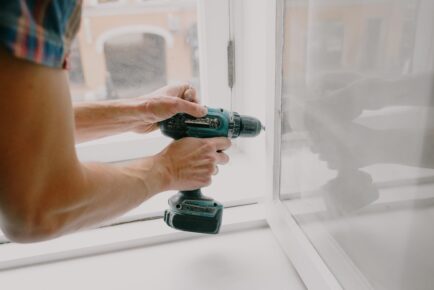Many or all of the products and brands we promote and feature including our ‘Partner Spotlights’ are from our partners who compensate us. However, this does not influence our editorial opinion found in articles, reviews and our ‘Best’ tables. Our opinion is our own. Read more on our methodology here.
About Home Insurance
Home insurance helps cover the cost of repairing or rebuilding your property or replacing your belongings after an unexpected event, such as a fire, a storm or a burglary.
Most of us couldn’t easily afford to rebuild our home from the ground up and replace everything in it if the worst happened. So it’s no surprise that millions of people in the UK have home insurance.
If you’re a homeowner, you’ll likely be looking for buildings insurance and contents insurance – cover for your property’s structure and everything in it.
You can get specialist home insurance for holiday homes, rental properties, listed buildings and unoccupied homes. This is because there are different considerations and risks for properties that aren’t your main residence, or that are made from specialist materials.
If you’re renting, you’ll only need to consider contents insurance, as buildings insurance is the landlord’s responsibility.
You’ll have the option of add-ons, including cover when you take your belongings outside your home, accidental damage and emergency call-out cover, if they’re important to you.
Not all standard policies offer the same level of cover, though. So along with the cost, make sure you’re clear about what’s covered and what isn’t, and where you might want add-ons.
This insurance quote service is powered by Quotezone. The data you supply and submit is collected directly by Quotezone who are responsible for the handling and processing of that data. By using their quote system you are agreeing to their terms and conditions and privacy policy which can be found at Quotezone.co.uk.
What is home insurance?
Home insurance helps cover the cost of replacing or repairing your property or belongings if they’re damaged, destroyed or stolen. The two main types are buildings insurance and contents insurance.
Buildings insurance covers the physical building structure and permanent fixtures and fittings, such as baths and built-in kitchen units. It can also cover what’s outside, such as decking, sheds and fences on your property.
Contents insurance is for your belongings, including clothes, furniture and electricals, and covers the cost of replacing or repairing them. Generally, it’s all the things you would take with you if you moved, but it also includes curtains and carpets. Some policies also include cover for the contents of your freezer and lost keys.
How much is home insurance?
The average premiums for home insurance in the UK between April and June 2022 were, according to the Association of British Insurers (ABI):
- combined buildings and contents insurance: £299
- buildings insurance: £228
- contents insurance: £116
But this is just an average and what you pay depends on a few factors, including the type of cover you’re looking to buy, how much you need, your claims history and where you live.
Since January 2022, new rules brought in by the Financial Conduct Authority (FCA) ended the loyalty penalty for home and car insurance, where insurers offered the most competitive deals to new customers. So when you renew your home or car insurance policy, you can’t be charged more just for being an existing customer. But this only means you can’t be penalised for not being a new customer, and your insurance premium could still go up for other reasons.
You can still shop around for a better deal and, thanks to the new rules, cancelling the automatic renewal of your current policy should now be less of a headache.
Who needs home insurance?
There is no law that says you must have home insurance. But that doesn’t mean you shouldn’t consider it. If you’re a homeowner, most mortgage providers ask you to have buildings insurance in place. That is so they know the cost of making repairs or rebuilding your home after damage would be covered.
You don’t have to get the buildings insurance a mortgage provider offers you, unless it’s a condition of the agreement – though the lender may check that the cover you take out is enough.
If you’re a landlord, standard home insurance policies may not provide the cover required for a buy-to-let. Landlord home insurance offers protection for issues such as loss of rental income if your property is uninhabitable and disputes with tenants.
If you’re renting a property, it’s the landlord’s responsibility to arrange buildings insurance, or the freeholder if it’s a leasehold property. But you’ll need to take out your own renters contents insurance if you want to cover your belongings for damage or theft.
Like buildings insurance, contents insurance isn’t compulsory, but without it you would need to foot the bill for repairing or replacing your belongings if they were destroyed or stolen. This includes clothes, jewellery, furniture, kitchen items and electricals.
What does home insurance cover?
Generally, buildings insurance helps cover the cost of repairing damage to your home or completely rebuilding it, if it’s destroyed. Contents insurance helps cover the cost of repairing or replacing damaged or stolen belongings.
What is usually covered with home insurance?
Most buildings and contents insurance policies will cover damage caused by:
- flooding and storms
- fire and explosions
- burst, frozen or leaking pipes
- water damage
- subsidence
- theft and vandalism
- fallen trees, lampposts, aerials and satellite dishes
- vehicle or aircraft collision
If you need emergency temporary accommodation such as after a flood, your home insurance will usually cover the cost – but check the small print.
Buildings and contents insurance policies usually also offer personal liability cover, up to certain limits. This is for if a visitor is injured or their property is damaged in your home, or if you or someone in your household accidentally damages someone else’s property. This isn’t the same as legal services cover, which is usually an add-on to a home insurance policy.
Other optional extras for contents and buildings insurance include home emergency cover to fix emergency issues, and personal possessions cover for when you take your belongings outside your home.
What’s not usually covered by home insurance?
Policies vary, but standard home insurance doesn’t usually cover:
- Wear and tear or gradual damage, as it’s designed for unexpected, sudden events.
- Electricals that have come to the end of their useful life.
- Damage after lack of maintenance or poor handiwork.
- Accidental damage, such as dropping your TV or a crack in your bath after knocking something off a shelf. Comprehensive accidental damage cover is usually an add-on, which costs extra.
- If you make a claim for a home that was unoccupied for more than 30 days in a row, unless you’ve let your insurer know beforehand and they adjusted your cover.
- Damage caused by pets, such as chewed table legs, scratched table tops and nibbled wiring. Even if you take out accidental damage cover as an add-on, you’ll likely need an extra extension to cover damage caused by four-legged friends.
- Damage after pest infestations, such as mice, rats and wasps. You’ll usually need home emergency cover as an add-on for that.
Insurers usually set single item limits with their contents insurance of around £1,500 to £2,000. So unless you tell your insurer about anything that would cost more than the limit to replace, it won’t usually be covered. It may need to be listed separately or require extra cover.
If you buy or are given high-value items after taking out the policy, let your insurer know so your cover includes them. Try to keep receipts as proof of purchase.
How much home insurance should I get?
If you’re taking out buildings and contents insurance, the amount of cover should be enough to cover the cost of rebuilding your property and replacing everything in it.
With buildings insurance, the total value of the insurance policy is the cost of rebuilding it from the ground up, including labour and materials – this is different from the current market value of your home. Most insurers calculate the figure by the number of bedrooms in your home. If it’s a sum-insured policy – which sets a maximum amount an insurer will pay out on a claim – you’ll need to calculate the rebuild cost of the property and tell your insurer. Although some insurers may estimate this for you, it’s still worth making sure it’s enough.
To help you calculate the costs, the Association of British Insurers (ABI) has a free Home Rebuild Calculator on its website.
If your buildings insurance policy offers unlimited cover, you don’t have to find the rebuild cost. It’s unlikely to be the cheapest option though, so you may want to see if a sum-insured or bedroom-rated policy offers enough cover.
When you’re working out how much contents insurance you need, make sure the maximum amount of cover offered matches the value of all your belongings. Some insurers have a single item limit, so make sure it’s enough to cover any high-value belongings.
With contents insurance – even if you have an unlimited policy – there may be a maximum amount you can claim for single items, so always check. And for some unlimited buildings insurance policies, there may be a maximum payout possible for some types of claims.
How do you get the best deal on home insurance?
Whether you’re buying a new policy or your current policy is due to renew soon, you don’t have to agree to the first price you’re given.
You can shop around for the best home insurance deal matched to your needs using comparison sites. You can also contact individual insurers directly, negotiate your renewal price with your current insurer, or use a broker to ask for home insurance quotes.
What influences the price of your home insurance?
When calculating your premium, an insurer will look at:
- The type of cover you choose, and whether it’s buildings or contents insurance, or both.
- If you are adding optional extras to your policy, such as accidental damage or home emergency cover.
- The rebuild cost of the property, which takes into account the size of your property and how it’s built, and for contents insurance, the total value of your belongings.
- The level of security in your home, including burglar alarms and smoke detectors, and the types of locks on doors and windows.
- The property’s location, and the risk of burglary and flooding in the area.
- Your claims history. You may get a discount if you haven’t made a claim against your home insurance at all, or for a while. Claims can bump up your premiums. Even so, the whole point of insurance is that it’s there for when things go wrong, and this shouldn’t put you off making a claim if you need to.
- If you choose a voluntary excess to pay on a claim, the higher your excess, the lower your premium will usually be.
More generally, what insurers charge customers will also be affected by the current rate of claims, insurance premium tax, and the changing cost of labour and repairs.
Home Insurance FAQs
Home insurance helps protect your home and belongings. It’s made up of buildings and contents insurance, which you can buy separately or as a combined policy.
Buildings insurance helps cover the cost of repairing damage to your home or completely rebuilding it, if it’s destroyed. Contents insurance helps cover the cost of replacing damaged or stolen belongings.
You agree a cover amount with the insurer, which is the maximum payout you would receive if you made a valid claim.
You can add bolt-ons to a standard policy which will, for example, protect your belongings outside the home and pay out for accidental damage.
You don’t have to have home insurance by law, but if you have a mortgage, your lender might insist that you do as part of the agreement.
Even so, having home insurance, whether that’s buildings and contents insurance combined, or just contents insurance if you’re renting, makes sense. Few of us could afford to rebuild our home or pay for significant structural damage, or replace all of our essential belongings.
Both types of cover also usually include liability protection for injuries or property damage. For example, if a visitor is injured by a falling roof tile, or they slip on a rug in your home and make a claim against you, it helps cover compensation payments if you’re found liable. And there are other extras that can help cover you and your family for accidental damage, taking your belongings out and about, or to fix emergencies in your home.
It depends on how and why it happened. If the leak was caused by an unexpected event, such as damage to an otherwise well-maintained roof during a storm or a fire, you should be able to make a claim on your buildings insurance.
If the leak caused damage elsewhere, fixtures and fittings may also be covered by your buildings insurance. You would need to claim on your contents insurance for water damage to your belongings, such as spoiled carpets and curtains.
If the leak happened due to lack of maintenance or wear and tear, perhaps through not clearing gutters or not replacing lost tiles – even if a storm, for example, made it much worse – your insurer may not pay out. To help avoid this, carry out preventative maintenance on your home, and fix problems when they happen – and before they get worse.
Standard home insurance won’t usually cover fixing a boiler that has broken down.
You can take out standalone boiler cover, or you may be able to add it to your home insurance policy, at an extra cost. There is basic cover for your boiler and controls, which may also include an annual service, or more extensive cover that includes your central heating, plumbing and drains.
It’s important to know that the insurer is unlikely to pay for a new boiler if your current one can’t be repaired or if they decide it’s ‘beyond economical repair’. However, it may offer an amount towards a new one. You may also find it harder to get boiler cover if you have an older boiler.
If you have home emergency cover as part of your home insurance, emergency boiler repairs may be included. This will deal with the emergency and temporary repairs but, again, it won’t cover the full cost if further repairs are needed or if the boiler needs replacing.
Before taking out boiler cover, be clear about what is covered and what the insurer won’t pay out for, as policies and levels of cover vary widely. If you have a manufacturer’s boiler guarantee or warranty, check how long it lasts and what it covers before taking out cover you may not need.
Buildings insurance is a type of home insurance. It covers the bricks and mortar of your property, as well as its permanent fixtures and fittings. This includes the walls, roof, floors, fitted bathrooms and built-in kitchens. It can also provide cover for your garden fences, gates, hedges, patios and outbuildings.
No, taking out buildings and contents insurance isn’t compulsory, and there is no law that says you have to have it – though some mortgage providers insist that you have buildings insurance as a condition of the property loan.
But whether you’re mortgage-free, have a mortgage or are renting, it’s a good idea to consider home insurance. Replacing everything you own, repairing structural damage or rebuilding a property if something happened would otherwise be expensive.
First, check what your standard home insurance policy already provides, to make sure you’re not doubling up on cover or getting more cover than you need.
Then, if you want to consider add-ons, think about what’s important to you. For example:
- Accidental damage cover pays out for mishaps, such as knocking paint over your carpet or unintentionally drilling through a waste pipe.
- Home emergency cover is for labour and parts to fix emergency issues, such as pest infestations.
- Personal possessions cover is protection for your belongings, such as jewellery and laptops, if they are lost, stolen or damaged when you take them outside your home, up to a maximum limit.
- Legal expenses cover helps pay legal costs for accidents that aren’t your fault and boundary disagreements, among other things.
These bolt-ons will usually cost extra but if they offer peace of mind and would be useful, you may want to consider them.
Take the time to read the inclusions and exclusions, so you know what the insurer will and won’t pay out for before you buy the policy.
Generally, buildings insurance will help cover the cost of repairing damage to your home and its fixtures and fittings, or completely rebuilding it if it’s destroyed. Contents insurance helps cover the cost of replacing lost, damaged or stolen belongings.
The cost of emergency temporary accommodation after a fire or a flood should be covered, up to a maximum limit.
Buildings insurance and contents insurance usually also provide some personal liability cover too. This might be if, for example, a visitor is injured or something they own is damaged in your home, or if you or someone in your household accidentally damages someone else’s property. This isn’t the same as legal expenses cover, which is an add-on to a home insurance policy.
It’s generally sensible to have cover for your belongings as well, but you don’t have to. Just bear in mind that buildings insurance won’t cover any damage or loss to TVs, laptops, smartphones, sound systems or games consoles. Your furniture, clothes, carpets, portable garden equipment and other essentials wouldn’t be covered either.
If you rent out your property and have landlord home insurance, you may not need any contents insurance for your own belongings if the property is unfurnished.
If your contents insurance has a new-for-old policy, if you make a valid claim for a stolen or damaged item, the insurer would pay for a like-for-like, new replacement or repair it as new. So wear and tear or how it might have reduced in value over time won’t be taken into account. The exception may be for belongings that wear out fast, such as bedlinen.
If you have indemnity cover, which is much less common, your insurer pays for a replacement that reflects what the item is currently worth, bearing in mind its age and wear and tear. Your premiums are likely to be lower, but make sure you would be comfortable with only getting the value of the older item.
You won’t need to get buildings insurance, as your landlord should take care of that. But you might want to take out contents insurance in case your belongings are lost, damaged or stolen. Otherwise, you would need to cover the full cost of replacing all your essentials, such as your laptops, kitchen equipment and clothes.
Even if your landlord has contents insurance for their own belongings in the rental, perhaps because it’s part-furnished, it won’t cover anything that belongs to you.
If you’re studying away from home, student contents insurance can help safeguard your things, whether you’re renting a room, sharing a house or in halls. You can take out your own policy or if you live with family, they may be able to add a student policy to their contents cover. As with any sort of insurance, it’s key to check what’s included in the cover, such as whether it includes your bike or taking your valuables outside your accommodation.
You’ll usually be able to choose to pay your premium in one amount or over time, by monthly instalments. Paying up front usually costs less, if that’s something you can afford.
This is because some insurers charge interest when you choose to spread the cost, which can add up. If you’re paying monthly, you may be asked to pay an initial deposit and then 10 or 11 further monthly payments by direct debit.
Some insurers won’t charge extra for monthly payments, though. So if that’s important to you, look out for interest-free payments when you shop around for cover.
If you make a claim on your home insurance, you may be asked to pay an excess, which is the amount you pay towards a claim. The excess is deducted from the cost of a repair or replacement. There are two types of excess: compulsory and voluntary. The insurer sets any compulsory excess, but you may also be able to choose a voluntary excess amount.
Here are a few tips to keep in mind when it comes to you home insurance policy:
- If you run a business from home, you may need insurance for business use. Residential home insurance is unlikely to cover you for business visits or holding stock.
- If you’ve shifted to working from home since taking out your policy, you may need to let your insurer know – though it doesn’t necessarily mean you’ll need more cover.
- If you are renovating your home and making structural changes, such as a loft conversion, tell your insurer before going ahead, or it may invalidate your insurance.
- If you add high-value items to your home after taking out a contents insurance policy, tell your insurer, so you know they are included in your cover.
- If your home is due to be empty for longer than 30 days in a row, standard home insurance won’t usually cover you. Tell your insurer, as you may need unoccupied home insurance for that period.
You can search for home insurance and find competitive prices using a comparison website.
Of course, the cheapest home insurance isn’t necessarily the best home insurance for you and your needs. There is no point getting cover if it isn’t right for you, or if it leaves you underinsured. So while there are bargains to be had through shopping around, always check that the cover you’re buying does what you need it to do.
Latest articles

Consent to Let for Renting Out Your Home
If you want to temporarily rent out your home while you live elsewhere, you’ll need consent to let from your mortgage provider. Here’s how it works and why going ahead without it is a bad idea.

What Insurance Do You Need for a Home Business?
If you run a home-based business, you may be considering taking out insurance to protect it if things go wrong. Find out more about home business insurance, what it covers and why you may need it.

Should I Move House or Make Home Improvements?
If your house no longer suits your needs you have two choices: renovate or move. Both of these options can cost a lot of money, so we discuss when you might consider them and how you can fund your decision.






